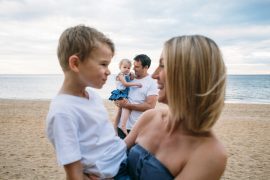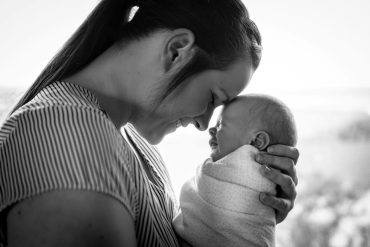- Respond instead of reacting – the more conscious you become the more you will be able to respond instead of react. It will allow your brain those few seconds to recalibrate when you’re in the heat of the moment and you’ll be able to consciously respond opposed to over reacting. So for instance, when your child does something that triggers you – such as spills a glass of milk over. You’ll be able to understand that it was an accident, your child didn’t mean to and that everyone makes mistakes. You will be able to witness how you yourself are feeling in that moment and how your state is impacting whether you respond or react in any given moment.
The more you can be aware of your own feelings and your own state, the more you can realise that your child’s behaviour isn’t the problem. It’s dependent on whether or not you have been tending to your needs and filling your cup up.
- Apologise and talk your child through your own feelings – no one wants to lose it at their children but I’m not naive in understanding that as parent’s stress levels and worry soars during the Coronavirus pandemic, we are going to perhaps experience more times where we behave less favourably towards our children. In these times, we need to acknowledge that we are human and we mess up and we also need to send a signal to the child that it is absolutely NOTHING to do with them and everything to do with what’s going on for us. We also don’t want the child to feel like they have to switch roles and parent us so instead, when we don’t feel right and we don’t behave right, we can use this as a teaching opportunity.
“Mummy is sorry that she shouted. It isn’t anything to do with you. I haven’t had much sleep as lots is on my mind. I have a few adult worries about work and sometimes it’s hard for me to switch off. I love you so much and I’m going to ensure I put some self care routines in place so I’m not as stressy as I have been”.
(This seems like a lot but children require this level of detailed explanation – I mean if we expect them to grow up and to be able to communicate and articulate in such a way, we are going to have to model this to them!)
- Nurture and tend to your inner child – the way we respond to stress is likely the way our own parents responded to stress. If we didn’t see our parents healthily regulate their emotions and instead turn to unhealthy ways of coping, we will be more prone to repeat these patterns. It’s good to bring your awareness around highly stressful events growing up and whether your parents over reacted or whether they responded and found healthy ways to manage stress. Get into the habit of talking to your inner child and asking; “What does my inner child need in this moment?”.
Maybe you need a warm cup of tea/coffee, you may need to go outside and take ten deep breaths or you may need to pick up the phone and talk to a balanced friend who makes you feel more rational about things.
- Validate feelings – not only do we want to be validating our child’s feelings but we also want to be validating our own. When your child says, “Daddy I’m scared,” we need to validate that instead of dismissing them by saying something like, “there’s nothing to be scared of.” Just acknowledge them, really see and hear them. “Yes, I totally get why you would be feeling scared right now and that’s OK. I feel scared sometimes too.” This can encourage a discussion about feelings and then you can work together and brain storm some ideas of what you can do when you feel that way. For example, you validate that your child is scared and then you ask them, “Is there anything I can do to help you when you feel this way?” and offer some suggestions. “Do you need a hug? Can I get you a drink? Would you like to talk more about this? Where do you feel this feeling in your body?” – you’ll be surprised how much this can help you as well.
If you are struggling at the moment and would like some 1:1 support, I am offering my coaching calls for half the price during this time. Please use the contact page here to get in touch – I would love to support you further or answer any questions you may have.
Originally published here.
Being obsessed with self development and psychology, Fiona Ng took her desire to learn more about why we do what we do and qualified as an NLP Practitioner and later became qualified as a Parenting Coach with the Jai Institute of Parenting. She also holds a BA Hons Degree in Tourism Management and prior to becoming a mum was an Event Manager in the hospitality industry. You can find out more on her website and on her Instagram and Facebook pages.










